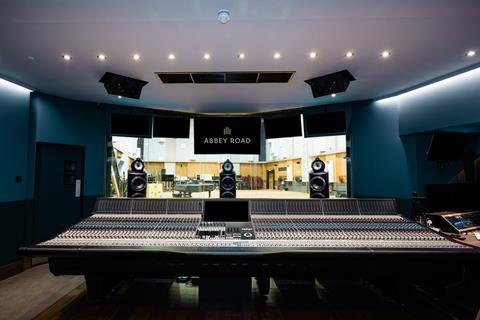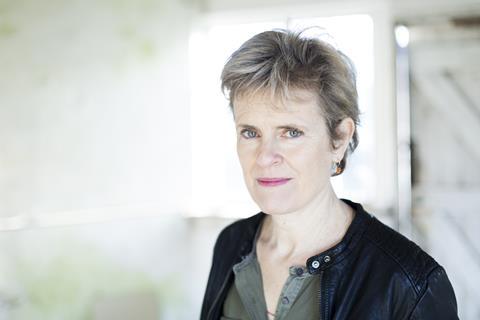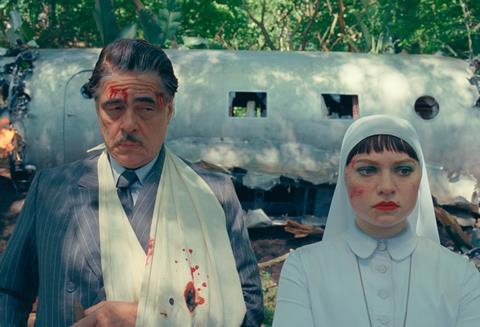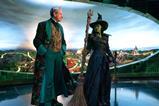
World class musicians and globally renowned studio spaces, as well as industry-leading engineers and technicians, are among the top notes helping to maintain the U.K.’s high profile as a key destination for scoring film, and high-end TV. Whether it’s a choir and full orchestra, a brass section or a folk band with fiddles and banjos, U.K. studios and recording facilities can meet the various needs of composers and music supervisors.
“All the U.K. studios have different characters and different sounds, and they have different desks, different engineers working there,” notes leading UK composer Rachel Portman, who in 1997 became the first female composer to win an Oscar for her work on Douglas McGrath’s Emma, starring Gwyneth Paltrow. “All are of the highest quality and skill, and that’s why composers want to work there.”
Portman is also the first female composer to win a primetime Emmy award for film blues biopic TV film Bessie and boasts two further Oscar nominations for The Cider House Rules and Chocolat – the latter also garnering her a Golden Globe nomination. Much of her work has been undertaken at London’s Abbey Road Studios and AIR Studios; two of the biggest global names in music recording.

Earlier this year, Abbey Road reopened its legendary Studio One recording space after a sixth-month multi-million-pound refurbishment; the first renovation since the studio opened almost a century ago. Its 4,844 square feet room claims to be the world’s largest purpose-built recording space with room for an orchestra and a choir at the same time.
“While the size and space are key, the studio’s amazing acoustics and unique sound have put it at the very heart of the global film scoring world,” says Abbey Road Studios managing director Sally Davies.
The newly refurbished Studio One space marked its re-opening with a live orchestra performing pieces from film scores recorded in Studio One over the last 45 years, including Raiders of The Lost Ark, The Return Of The Jedi, The Lord Of The Rings and The Hobbit trilogies, the Harry Potter franchise and Skyfall.
“We care deeply about being the best in the world for film scoring,” notes Davies. “Not only do our clients deserve exceptional service, but trailblazing is in our DNA and we must remain cutting edge.”
To keep on top of the score sheet, Abbey Road’s upgrades include replacing a 20-year-old 72-channel AMS Neve 88RS SP2 recording console with an 84-channel AMS Neve 88RS SP3D recording console, the introduction of 7.1.4 monitoring, and extensive acoustic treatment and re-fabricating.
“Our services, range of tech, and the extensive experience of our engineers and wider team, makes Abbey Road a place people are drawn to,” Davies believes. Indeed, myriad Oscar-winning projects such as The Last Emperor, The Shape Of Water, Gravity, Black Panther and Barbie have all been scored there, as was Daniel Blumberg’s Oscar-winning music for last year’s The Brutalist.
Another world-renowned studio based in London is AIR Studios, the recording, mixing and mastering services studio established by ‘fifth Beatle’ Sir George Martin.
“You can build a world-class facility, but it is nothing without the skill, dedication and talent of the AIR family that make the recordings happen,” notes AIR Studios CEO Simon Knee. “Of course, none of this would exist without the excellent U.K. musicians and combined with the UK tax relief we really are a sweet spot for realising great soundtracks.”
Recent work at AIR Studios includes the gathering and recording of an ensemble of 20 bongo players for Lorne Balfe on Mission Impossible: Dead Reckoning, which also required a 110-strong ‘tutti’ orchestra.
That feat was made possible by the fact that AIR’s Lyndhurst Hall is one of the world’s largest recording rooms, providing a live area that can accommodate a full symphony orchestra and choir simultaneously. There are three other studio spaces including Studio 1, a recording space for bands and small orchestral groups, and Studio 2, a 7.1.4 Dolby Atmos monitoring mixing room.
“Giving clients confidence in the process means that the score they have been working on for months can be realised in days,” Knee says.
Diverse sounds

Outside of London, world-class recording facilities and orchestras can be found throughout the nations and regions of the U.K. In Scotland, the Royal Scottish National Orchestra (RSNO) works in partnership with Scottish Digital Arts, which operates a large studio space - big enough to host the orchestra - and recently upgraded the facility’s main control room.
“Among the many attractions for composers is they get access to a really top-class orchestra, and they pick and choose the elements of the orchestra they want for the job,” says RSNO chief executive Alistair Mackie. “Composers arrive with an orchestration which varies a lot, and we’ll deliver. I believe we are the only orchestra that I know that has its own world class studio.”
Recent projects executed in Glasgow include The Phoenician Scheme from composer Alexandre Desplat, Steven Price’s work on Amazon Prime show Heads Of State, both seasons of Apple TV+’s Silo - the first of which saw composer Atli Örvarsson won a Bafta TV craft award - and Netflix’s Back In Action with composer Chris Lennertz.
“From a musician point of view the lure of the film and high-end TV sector is great for musicians’ income,” says RSNO head of orchestra Ewen McKay. ”Three or four years ago, that type of work - orchestral soundtrack - in Scotland didn’t really exist. We’re the first to offer that large scale facility in Scotland.”
Advances in technology also mean composers can create a virtual version of the orchestra in a digital audio workstation, layer the score and provide directors with how the score will work with the pictures on a computer. It makes studio time more efficient when it comes to recording live.
It’s no wonder that the UK’s recording studios and composing talent are in constant demand, and the landscape is expanding to keep up with increased workflow. There are plans, for example, to turn Maida Vale Studios, a facility formerly owned by the BBC in London, into a multi-purpose studio and post-production facility. The project is spearheaded by MVS Partnership, a prestigious group including Working Title Films’ co-chairs Tim Bevan and Eric Fellner and Oscar-winning composer Hans Zimmer, whose credits include The Lion King, Interstellar and Inception.
For composer Portman, it’s little surprise that the UK has become a destination of choice for film and high-end TV music composition and recording. “We have the best session orchestral players in the world here. They’re outstanding and versatile. They play something for the first time, having never seen it before, and it means something immediately.”














No comments yet